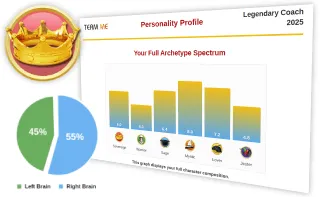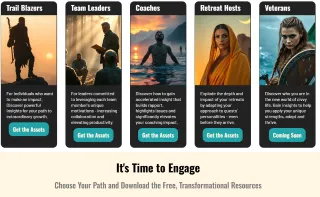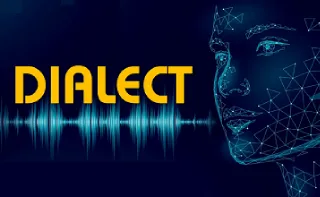ROOM 404
Did Someone Send You Here?
Take Another Turn to Continue Your Adventure
Corporate Programs
Discover the range of programs we offer for your organisation on teammeleaders.com
Free Resources for Your Path





Change your Life by Awakening the Energy of these Archetypes
Imagine having a personal guide to help you connect with the power of all these archetypes - each and every day.
With powerful narration and stirring orchestral music, this audio has been designed for repeated usage to help you develop the mindset of these vital characters - and to boost that energy whenever you most need it.
This can change the way you view and approach any situation, providing you with many more empowering choices that will open the way for greater achievement in life.

Ty OG - Mr Universe says,
“This stuff really works ! I recommend you use these audios daily to discover the power of these universal archetypes and strengthen their unique character traits in your life.”

Archetype Activation Album
This unique audio experience is designed for you to explore and activate the energy of ALL SIX of the TEAM ME® Archetypes in your life.
A 1 Hour Transformational Audio Experience
Simply Plug In ...and Step Up!
Unleash Your Legendary Potential
TEAM ME® is committed to helping individuals from every walk of life to play their best game in life through powerful insights that build self-awareness, self-respect and self-worth, helping them unleash their full potential.
© 2025 TEAM ME / Come Alive Success Coaching ltd.
All Rights Reserved,




